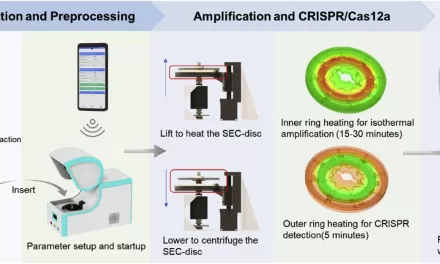In a groundbreaking initiative, researchers at Heriot-Watt University in Scotland have devised a method to repurpose discarded chewing gum from UK streets into environmentally friendly lateral flow tests (LFTs), aiming to tackle medical waste and promote sustainability in healthcare.
The innovative approach involves the creation of five diagnostic devices crafted from a variety of recyclable plastics, including materials such as High Impact Polystyrenes (HIPs) sourced from old fridge parts and Limex, a material derived from limestone. By utilizing recycled plastics, the project aims to address the significant environmental impact associated with the production of traditional single-use LFTs.
According to researchers, approximately 16,000 tonnes of plastics are used globally each year for the production of rapid testing materials, contributing to carbon emissions and environmental degradation. However, the utilization of recycled plastics in diagnostics has historically posed challenges related to contamination.
Lead academic Maïwenn Kersaudy-Kerhoas, from Heriot-Watt University’s global research Institute for Health and Care Technologies, highlights the potential of sustainable LFTs to significantly reduce carbon emissions associated with virgin plastic processing.
Kersaudy-Kerhoas stated, “If we can make LFTs out of sustainable materials and without the use of fossil fuels in their production, we can save between 30% and 80% of carbon emissions that virgin plastic processing produces.”
The research team has obtained approval to test the prototypes, ensuring their functionality matches that of existing LFTs, particularly concerning the flow of liquid on the testing strip. By demonstrating the feasibility of these sustainable devices, the initiative seeks to foster discussions on healthcare sustainability and advocate for the development of a circular economy through potential changes in procurement and legislation.
The project represents a significant step forward in the quest for eco-friendly diagnostic solutions, leveraging innovative approaches to repurpose waste materials and mitigate the environmental impact of medical testing. As Heriot-Watt University pioneers sustainable practices in healthcare, the initiative holds promise for shaping a greener and more resilient future for diagnostic technologies.











